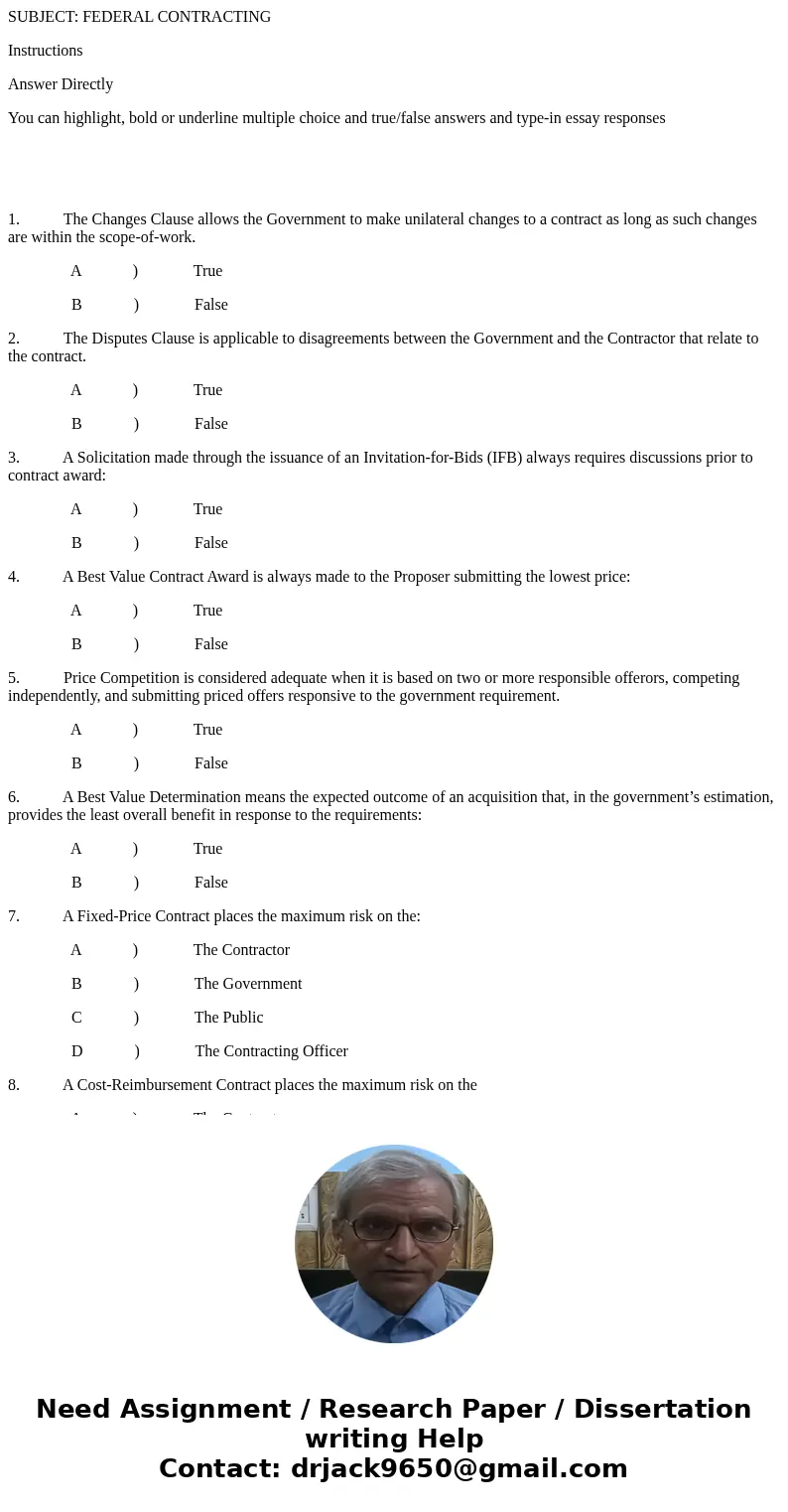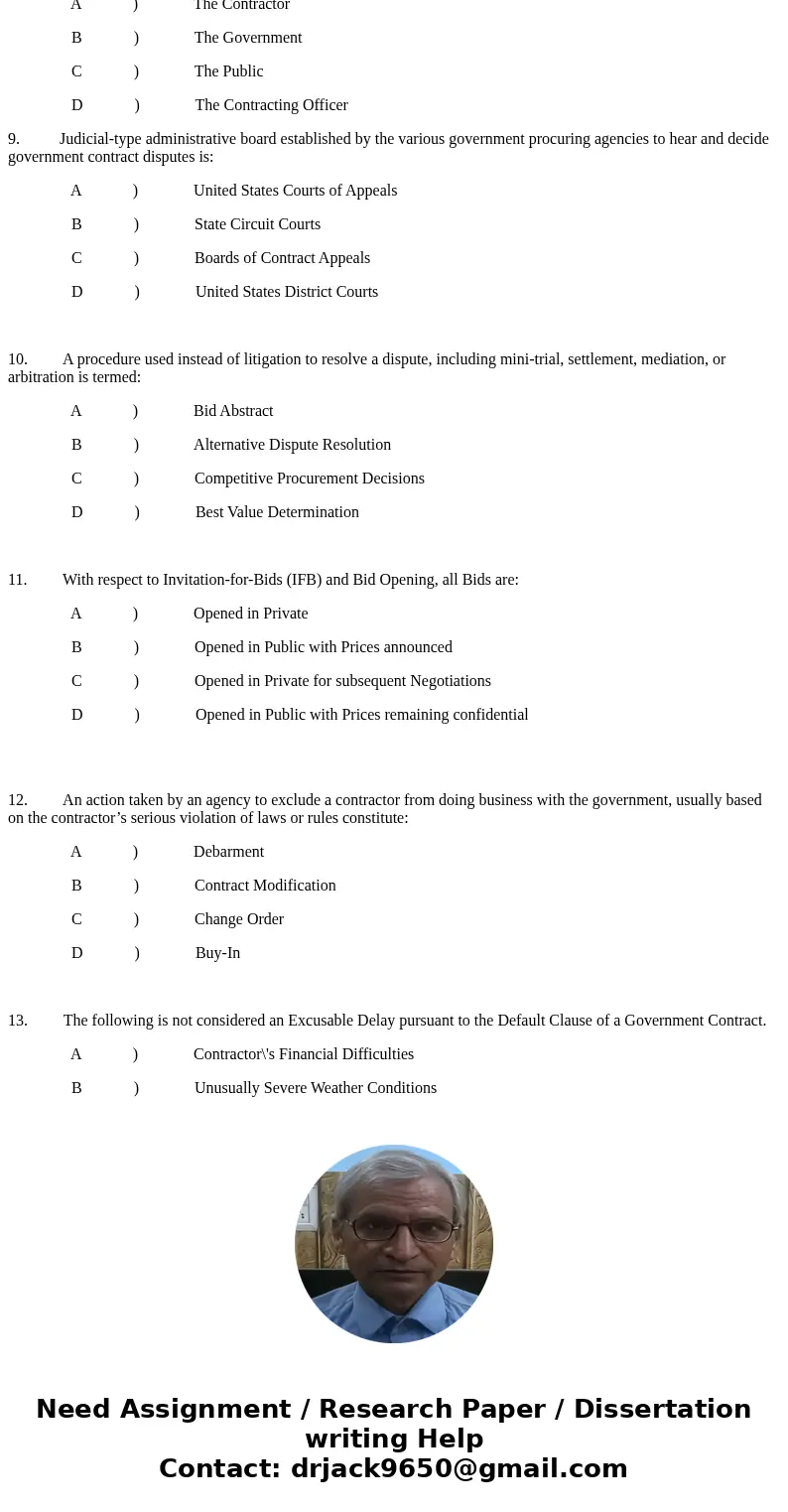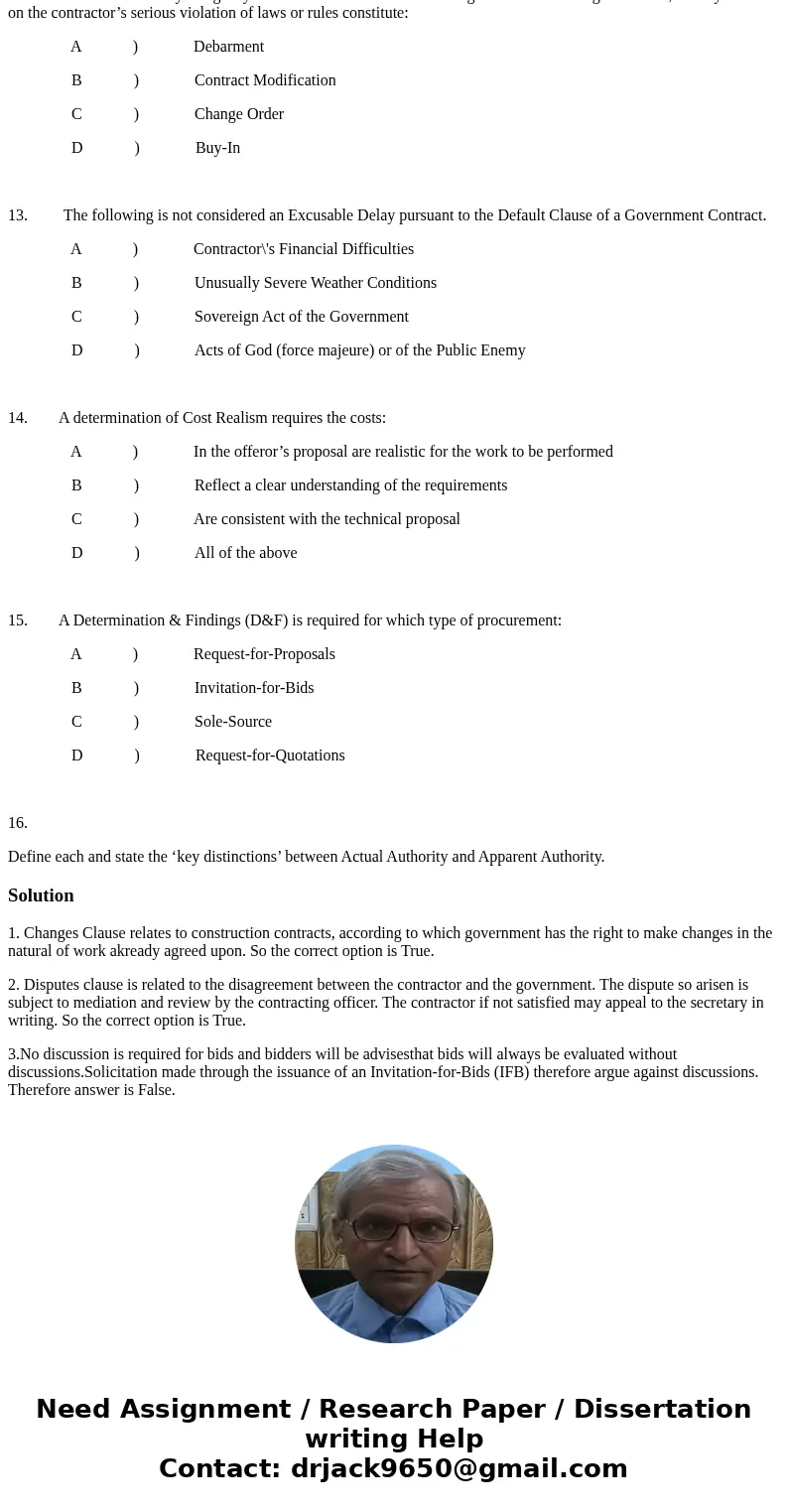SUBJECT FEDERAL CONTRACTING Instructions Answer Directly You
SUBJECT: FEDERAL CONTRACTING
Instructions
Answer Directly
You can highlight, bold or underline multiple choice and true/false answers and type-in essay responses
1. The Changes Clause allows the Government to make unilateral changes to a contract as long as such changes are within the scope-of-work.
A ) True
B ) False
2. The Disputes Clause is applicable to disagreements between the Government and the Contractor that relate to the contract.
A ) True
B ) False
3. A Solicitation made through the issuance of an Invitation-for-Bids (IFB) always requires discussions prior to contract award:
A ) True
B ) False
4. A Best Value Contract Award is always made to the Proposer submitting the lowest price:
A ) True
B ) False
5. Price Competition is considered adequate when it is based on two or more responsible offerors, competing independently, and submitting priced offers responsive to the government requirement.
A ) True
B ) False
6. A Best Value Determination means the expected outcome of an acquisition that, in the government’s estimation, provides the least overall benefit in response to the requirements:
A ) True
B ) False
7. A Fixed-Price Contract places the maximum risk on the:
A ) The Contractor
B ) The Government
C ) The Public
D ) The Contracting Officer
8. A Cost-Reimbursement Contract places the maximum risk on the
A ) The Contractor
B ) The Government
C ) The Public
D ) The Contracting Officer
9. Judicial-type administrative board established by the various government procuring agencies to hear and decide government contract disputes is:
A ) United States Courts of Appeals
B ) State Circuit Courts
C ) Boards of Contract Appeals
D ) United States District Courts
10. A procedure used instead of litigation to resolve a dispute, including mini-trial, settlement, mediation, or arbitration is termed:
A ) Bid Abstract
B ) Alternative Dispute Resolution
C ) Competitive Procurement Decisions
D ) Best Value Determination
11. With respect to Invitation-for-Bids (IFB) and Bid Opening, all Bids are:
A ) Opened in Private
B ) Opened in Public with Prices announced
C ) Opened in Private for subsequent Negotiations
D ) Opened in Public with Prices remaining confidential
12. An action taken by an agency to exclude a contractor from doing business with the government, usually based on the contractor’s serious violation of laws or rules constitute:
A ) Debarment
B ) Contract Modification
C ) Change Order
D ) Buy-In
13. The following is not considered an Excusable Delay pursuant to the Default Clause of a Government Contract.
A ) Contractor\'s Financial Difficulties
B ) Unusually Severe Weather Conditions
C ) Sovereign Act of the Government
D ) Acts of God (force majeure) or of the Public Enemy
14. A determination of Cost Realism requires the costs:
A ) In the offeror’s proposal are realistic for the work to be performed
B ) Reflect a clear understanding of the requirements
C ) Are consistent with the technical proposal
D ) All of the above
15. A Determination & Findings (D&F) is required for which type of procurement:
A ) Request-for-Proposals
B ) Invitation-for-Bids
C ) Sole-Source
D ) Request-for-Quotations
16.
Define each and state the ‘key distinctions’ between Actual Authority and Apparent Authority.
Solution
1. Changes Clause relates to construction contracts, according to which government has the right to make changes in the natural of work akready agreed upon. So the correct option is True.
2. Disputes clause is related to the disagreement between the contractor and the government. The dispute so arisen is subject to mediation and review by the contracting officer. The contractor if not satisfied may appeal to the secretary in writing. So the correct option is True.
3.No discussion is required for bids and bidders will be advisesthat bids will always be evaluated without discussions.Solicitation made through the issuance of an Invitation-for-Bids (IFB) therefore argue against discussions. Therefore answer is False.



 Homework Sourse
Homework Sourse